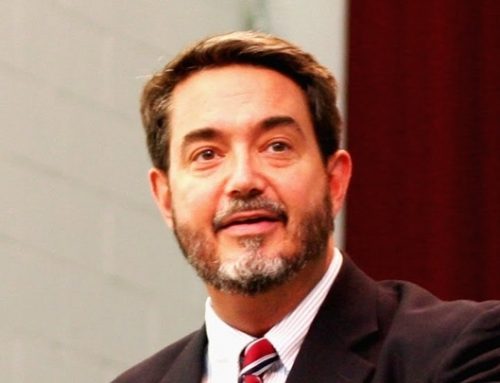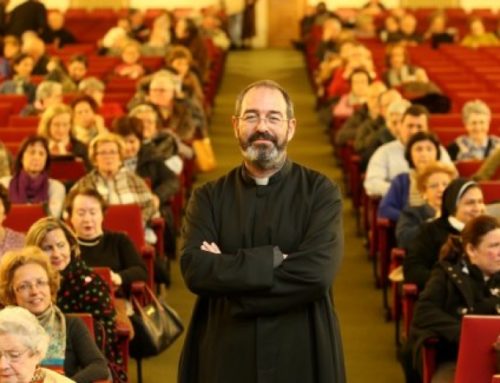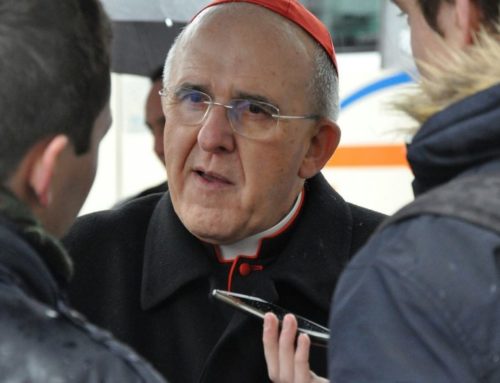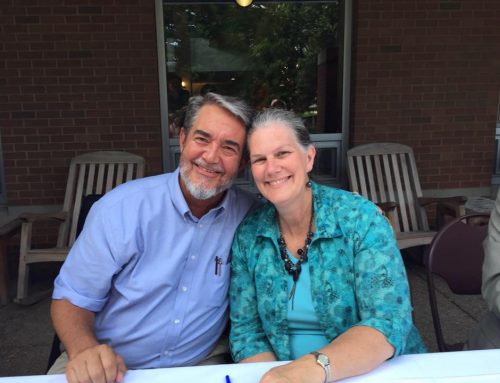A declaration of tolerance
This year marks the 1700th anniversary of the Edict of Milan, by which the Emperors Constantine the Great and Licinius established tolerance for Christianity in the Roman Empire. MercatorNet asked Mike Aquilina, an expert in the early history of Christianity, how this momentous step came about, and what relevance it has for the debate on religious freedom today.
In 313 Christians finally won their place in the ancient world with the Edict of Milan.
Celebrations have been rather low-key, but this year is the 1700th anniversary of the Edict of Milan in 313. What’s it all about?
Mike Aquilina: What we’re really celebrating is the first appearance of the notion of religious liberty. The so-called Edict — it may have been a letter — marked the agreement between Constantine I, who ruled the western lands, and Licinius, who controlled much of the East, to put a stop to the persecution of Christians. They could have presented this in many ways, but they chose to speak in terms of widespread tolerance. “We have also conceded to other religions the right of open and free observance of their worship for the sake of the peace of our times, that each one may have the free opportunity to worship as he pleases. This regulation is made that we may not seem to detract from any dignity of any religion.” It’s safe to say that these were revolutionary ideas, and their influence, at least in Western Christian lands, has been profound.
What was the situation before the Edict?
For two and a half centuries, Christians had endured intermittent persecution, which was occasionally quite intense. Sometimes there were long stretches between the imperial crackdowns. But, even in times of peace, Christians lived with the memory of persecution as a recent unpleasantness. They knew that there was substantial legal precedent for the suppression of the Church and the making of martyrs. They knew that anti-Christian violence, outside the law, probably wouldn’t be punished. In the years leading up to the Edict, the Church had endured the empire’s most thoroughgoing persecution to that point in history.
What motivated Licinius and Constantine to take such a momentous step?
If they’d had Facebook accounts, they could honestly have said, “It’s complicated.” Both men had many motives for their action, and their motives were mixed. Both had family members who were practicing Catholics, and both seem to have had some level of personal interest in the faith, but at this remove it’s hard to say how far that went. They also were shrewd politicians, and they could see which way the wind was blowing. The sociologist Rodney Stark, in his book Cities of God, has demonstrated that, by the time of the Edict, all the empire’s major urban centers had majority- or plurality-Christian populations. The research of Thomas A. Robinson seems to indicate that the rural populations had been similarly Christianized. In every sector of society — military, education, commerce, government — Christians were present and making great contributions. In pragmatic terms: persecution was counter-productive. Why did Constantine and Licinius do what they did? We’ll probably never know. But their reasons were many, varied and, I think, sound.
One of Constantine’s court intellectuals, Lactantius, wrote eloquently in defence of religious freedom – “Torture and piety are quite different things; truth cannot be joined to force or justice to cruelty.” Was he an important influence in shaping religious toleration?
Probably. He was Constantine’s advisor. He tutored Constantine’s son. And he was a bestselling author. He was raised in the traditional Roman religion and served as an advisor to the emperors. Lactantius converted to Christianity as an adult, during a time of persecution, and he suffered for his decision. By the time Constantine raised him from obscurity, he was a respected Christian thinker, an old man who had earned a hearing and could make a sound and sympathetic case for tolerance. His placement seems — frankly, providential.
So the Edict of Milan didn’t actually make Christianity the religion of the Roman Empire?
No, that came later with Theodosius — in less tolerant times and less tolerant terms.
Afterwards Julian the Apostate tried to reverse the policy of toleration? Did that shape subsequent views of religious freedom?
It certainly shaped subsequent history. Julian banned Christians from teaching in the universities. He used the imperial treasury to bankroll a pagan religion he created in the image and likeness of the Christian Church. It had a hierarchy, Scriptures, liturgy, and institutional charities — all hallmarks of Catholicism. His project failed, as he died young on the battlefield. His successors were Christians who were determined not to let such backsliding happen again. They relied, however, on the methods of Julian rather than Constantine, imposing unity and uniformity by coercive means.
Did the early Fathers of the Church grasp the importance of religious freedom?
They were all over the map. The early apologists argued for it, because they were misunderstood and marginalized. They just wanted a fair hearing. Some later Fathers, in the wake of Julian, wanted to shore up the Church’s position, and so they threw their support behind coercive measures that favored Christianity.
After such a promising start, how did Europe revert to coercion of dissenters and heretics?
Again, it’s complicated. As the first millennium came to an end, the western lands watched with alarm as the east fell to Islam. Western leaders, in Church and state, placed a premium on unity against a common enemy. Muhammad himself was viewed by the Fathers as a Christian heretic, and they make a persuasive case.
Also, as the Empire fell apart, the Church, in many places, became the state. It was the only cultural force with the vision, means, and motives to establish and maintain order. Thank God someone was there to do the job — but it did blur a lot of lines. The west had avoided some of the temptations of the east. In Constantinople, for example, the patriarchs were too often willing instruments of the emperors. In the west, perhaps too often the bishops were the governors — and, as time wore on, the governors became the bishops.
Do you think that the Edict of Milan has any relevance to contemporary debates over the notion of religious freedom?
Peter Leithart argues that Constantine’s view is actually healthier than the Enlightenment and post-Enlightenment schemes, which sometimes display shocking intolerance as they demand the suppression of distinctive doctrines and practices. Constantine’s later edicts — to the Palestinians and to the Eastern Provincials — show even more mature doctrine, put sometimes in poetic terms. “Let no one disturb another. Let each man hold fast to that which his soul wishes. Let him make full use of this.”
The truth is that the modern world makes more Christian martyrs per year than the Roman Empire ever did. And even modern democracies are growing increasingly hostile to any religious expression that dissents from government-imposed standards.
I’m watching for the next Lactantius.
Mike Aquilina is a popular author working in the area of Church history, especially patristics, the study of the early Church Fathers. He blogs on early Christianity at FathersOfTheChurch.com







Leave A Comment
You must be logged in to post a comment.